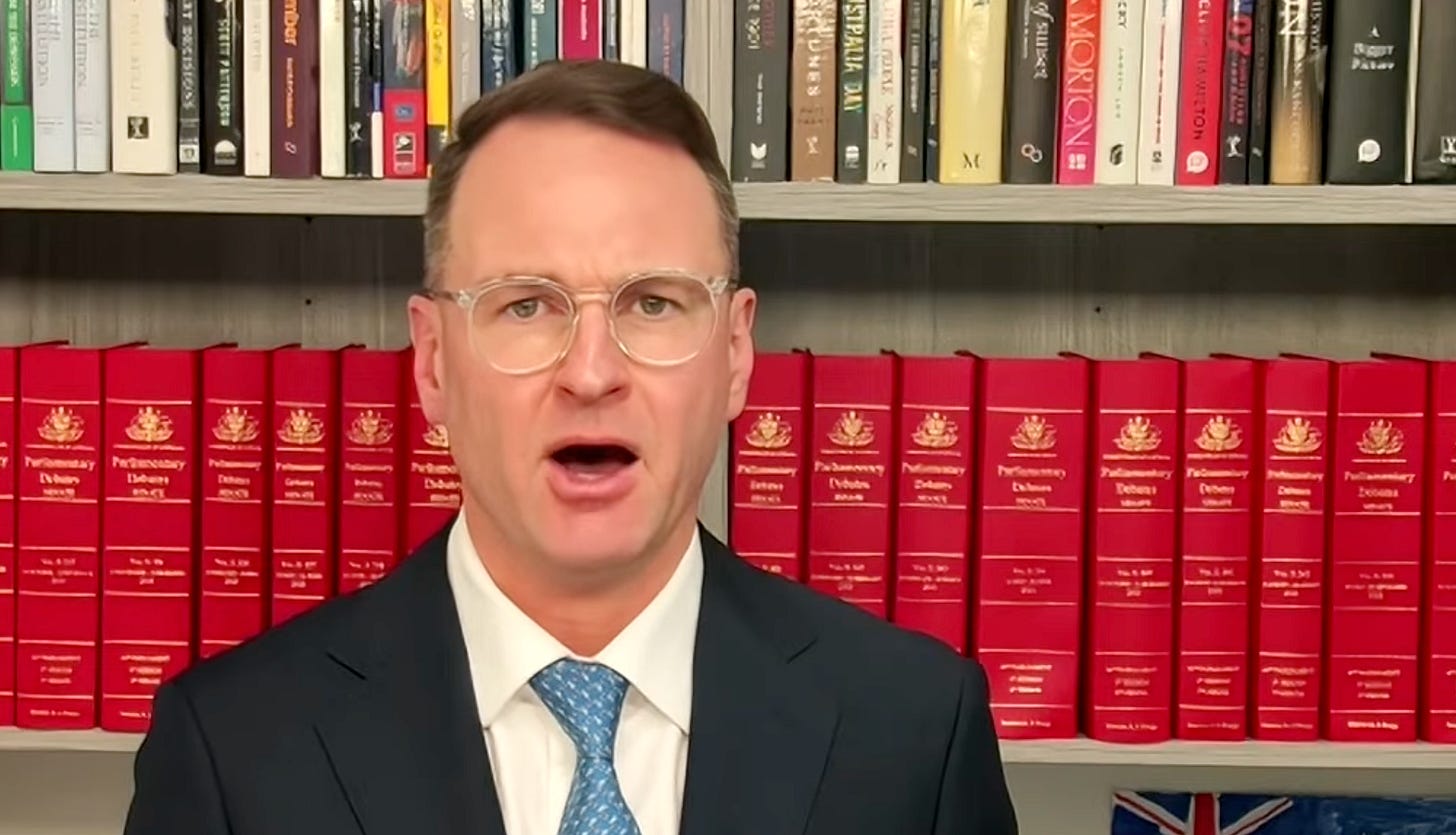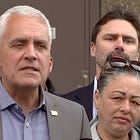Coalition Signals Support for Deregulation at Labor's Economic Summit
Today’s email is brought to you by Empower your podcasting vision with a suite of creative solutions at your fingertips.
The Coalition will attend this week's government productivity roundtable prepared to back proposals that slash red tape and boost business investment, as both major parties search for solutions to Australia's sluggish economic growth.
Shadow Energy Minister Ted O'Brien will represent the opposition at the three-day summit beginning Tuesday, with Liberal Senator Andrew Bragg indicating the party remains "very open-minded to providing support" for deregulation measures that emerge from discussions with business leaders and economists.
"If there are proposals to cut regulation, if there are proposals to help people invest and grow businesses, then we are very open-minded to providing support," Bragg told ABC's Afternoon Briefing Monday.
The Coalition's participation signals potential bipartisan cooperation on economic reform, despite sharp political divisions over the government's regulatory record. Bragg accused Treasurer Jim Chalmers of imposing nearly $5 billion in new compliance costs through 400 pieces of legislation passed in the current parliament.
"This guy has bunged up the economy with more red tape than he can pack a stick at," Bragg said, contrasting the current approach with what he described as net reductions in regulatory costs under the former Coalition government.
The productivity roundtable comes as Australia grapples with what Productivity Commission Chair Danielle Wood has described as years of neglecting economic growth as a policy priority. Wood's assessment spans multiple governments, including the Coalition's near-decade in power before 2022.
When pressed about the Liberal Party's own productivity record, Bragg acknowledged room for improvement but emphasized the need for forward-looking solutions rather than "looking backwards."
"I'm very happy to be magnanimous and to say that things could have been better in previous governments that I wasn't actually a member of the executive in, but ultimately we want to have a better country going forward," Bragg said.
Truth matters. Quality journalism costs.
Your subscription to Mencari directly funds the investigative reporting our democracy needs. For less than a coffee per week, you enable our journalists to uncover stories that powerful interests would rather keep hidden. There is no corporate influence involved. No compromises. Just honest journalism when we need it most.
Not ready to be paid subscribe, but appreciate the newsletter ? Grab us a beer or snag the exclusive ad spot at the top of next week's newsletter.
The senator outlined the Coalition's emerging economic priorities, focusing heavily on reducing what he called the "significant increase in the level of regulation" over recent years. He argued regulation had become "a productivity killer in Australia" by limiting business investment and expanding the non-market sector of the economy.
Bragg specifically pointed to 5,000 new regulations introduced since Labor took office, describing the cumulative impact as hampering business growth and economic dynamism.
O'Brien's attendance at the roundtable represents a strategic opportunity for the Coalition to influence policy development while in opposition. Bragg described the shadow minister as attending "in good faith" as the party develops its own policies ahead of the next election.
"We are the alternative government and we need to develop our own policies over the course of this term," Bragg said. "This is an opportunity for us to have some input into our own process, but also look to find common ground where we can help the Australian people have a better economy."
The Coalition's approach to the summit reflects broader opposition strategy of positioning itself as the party of business-friendly reform while criticizing Labor's regulatory agenda. However, Bragg's comments suggest genuine willingness to support measures that align with conservative economic principles.
Industrial relations reform appears likely to feature in future Coalition policy, with Bragg flagging concerns about "patent bargaining" and "union rights of entry" that he argued impose costs on businesses. He also criticized the government's handling of the Construction, Forestry, Maritime, Mining and Energy Union in the housing sector.
"The government don't seem to be too worried about the cost that the CFMEU is imposing on people who want to build a new apartment," Bragg said, indicating industrial relations would be "part of our policy as we fashion it over this term."
The roundtable brings together business leaders, union representatives, and economists to address productivity challenges that have persisted across multiple governments. Recent data shows productivity growth has stagnated, contributing to declining living standards and reduced competitiveness.
Both major parties face pressure to deliver concrete solutions, with business groups calling for streamlined approval processes and reduced compliance burdens while unions emphasize the importance of maintaining worker protections.
The Coalition's participation could provide political cover for controversial reforms that might otherwise face opposition attack. Bragg's emphasis on finding "common ground" suggests the party recognizes the political benefits of bipartisan economic policy where possible.
However, fundamental disagreements remain over the appropriate level of government regulation and intervention in the economy. While the Coalition advocates for deregulation as the primary solution to productivity challenges, Labor has emphasized the need for strategic government investment and intervention in key sectors.
The productivity roundtable runs through Wednesday, with participants expected to examine specific regulatory barriers, investment incentives, and structural reforms needed to boost economic growth. The government has indicated it will consider recommendations emerging from the discussions for inclusion in future policy announcements.
For the Coalition, the summit represents both an opportunity to shape policy direction and a platform to demonstrate constructive opposition engagement on economic challenges facing Australian businesses and workers.
The discussions come as both parties prepare for an election expected within the next 18 months, making any bipartisan agreements particularly significant for long-term economic reform prospects.
Got a News Tip?
Contact our editor via Proton Mail encrypted, X Direct Message, LinkedIn, or email. You can securely message him on Signal by using his username, Miko Santos.
Sustaining Mencari Requires Your Support
Independent journalism costs money. Help us continue delivering in-depth investigations and unfiltered commentary on the world's real stories. Your financial contribution enables thorough investigative work and thoughtful analysis, all supported by a dedicated community committed to accuracy and transparency.
Subscribe today to unlock our full archive of investigative reporting and fearless analysis. Subscribing to independent media outlets represents more than just information consumption—it embodies a commitment to factual reporting.
As well as knowing you’re keeping Mencari (Australia) alive, you’ll also get:
Get breaking news AS IT HAPPENS - Gain instant access to our real-time coverage and analysis when major stories break, keeping you ahead of the curve
Unlock our COMPLETE content library - Enjoy unlimited access to every newsletter, podcast episode, and exclusive archive—all seamlessly available in your favorite podcast apps.
Join the conversation that matters - Be part of our vibrant community with full commenting privileges on all content, directly supporting The Evening Post (Australia)
Catch up on some of Mencari’s recent stories:
It only takes a minute to help us investigate fearlessly and expose lies and wrongdoing to hold power accountable. Thanks!








